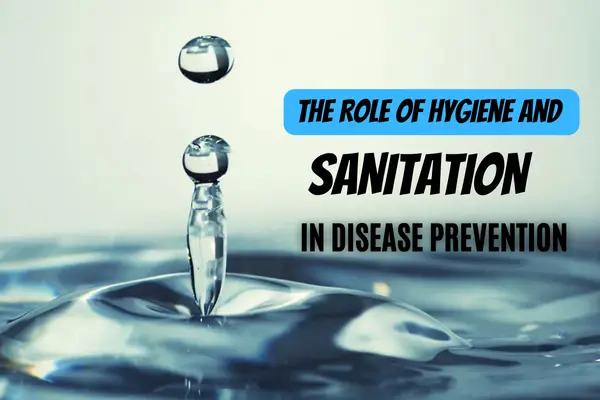According to recent estimates about water, sanitation, and hygiene (WASH), 1.4 million people die every year. They don’t have clean drinking water, toilets, and good hygiene. Most of these deaths happen in poor countries where many people don’t have access to these basic services. Not having safe toilets contributes to about 564,000 of these deaths, mostly because of diseases like diarrhea. It’s also a big reason why diseases like intestinal worms, schistosomiasis, and trachoma are still a problem. Poor sanitation can also lead to malnutrition.
In 2022, 57% of the world’s population (4.6 billion people) had toilets or latrines that were safely managed. This means the waste was taken care of safely. About 33% (2.7 billion people) had private toilets connected to sewers where the waste was treated before being released. Around 21% (1.7 billion people) used toilets or latrines where waste was safely dealt with on-site. Overall, 88% of people globally (7.2 billion people) had access to at least a basic toilet or latrine.
Diarrhea is still a big cause of death, especially among children under 5 years old, but it can usually be prevented. If there were better water, sanitation, and hygiene, about 395,000 children’s lives could have been saved in 2019.
Open defecation, which means people going to the bathroom outside instead of in a toilet, makes a bad cycle of disease and poverty worse. Countries where many people still use open defecation have more children under 5 years old dying, more malnutrition, more poverty, and bigger differences between rich and poor people.
Benefits
Improving sanitation brings many benefits that go beyond just preventing diarrhea. Here are some of the important benefits:
- Reducing Disease: It helps stop the spread of diseases like intestinal worms, schistosomiasis, and trachoma. These diseases cause a lot of suffering for millions of people.
- Improving Nutrition: Better sanitation can reduce malnutrition and make people healthier.
- Promoting Dignity and Safety: It helps people, especially women and girls, feel safer and more respected. Having separate toilets for girls in schools can encourage them to attend school regularly.
- Boosting School Attendance: When schools have good toilets, girls are more likely to go to school regularly.
- Fighting Antibiotic Resistance: It can help prevent the spread of antibiotic-resistant bacteria.
- Recovering Resources: It can also help us recover useful things like water, nutrients. Renewable energy from waste and sewage.
- Building Resilience: By safely using wastewater for things like irrigation during dry periods, communities can become more resilient to climate changes and water shortages.
A study by the World Health Organization found that for every $1 spent on improving sanitation. There was a $5.50 return in savings on healthcare costs, increased productivity, and fewer early deaths. This shows how important and valuable improving sanitation can be for communities and countries.
Challenges
The United Nations Deputy Secretary-General asked the world to improve sanitation by stopping open defecation by 2025. We’re making progress, but we need to work faster. If we keep going at the current speed, we might achieve basic sanitation for everyone by 2030. But to make sure everyone has really good sanitation, we would need to work even harder—five times faster than we are now.
In cities, especially in crowded, low-income areas, there are big challenges with sanitation. Some places don’t have proper sewers or enough space for toilets. This leads to problems like poorly managed sewage that contaminates water and causes health issues. Poorer parts of cities often suffer the most from pollution when sewage goes into rivers or drains during floods or storms. Climate change, like floods and droughts, also makes these problems worse.
People are starting to see wastewater and sewage as valuable. They can be used to make water cleaner, provide nutrients for growing food, and even make energy. But right now, a lot of wastewater and sewage are used in ways that aren’t safe. It’s important to treat wastewater properly to avoid making people sick and to get the most out of these resources.
In 2019, UN-Water started the SDG6 global acceleration framework to speed up progress on clean water and sanitation. The World Health Organization and UNICEF also launched a report in 2020 to show how much work still needs to be done. They set out a plan to make sanitation better and faster under this framework.
WHO response
In 2010, the United Nations said everyone should have clean water and toilets because it’s a basic human right. They set goals to make sure everyone has good sanitation and to treat dirty water so it’s safe to use again.
The World Health Organization (WHO) helps countries around the world to keep people healthy. They give advice to governments on how to make rules about health and how to provide good sanitation services. WHO looks at how many people have access to toilets and clean water, and they help countries figure out where to spend money to improve these things.
WHO also works with other groups to make sure that sanitation is safe in communities and hospitals. They give guidelines and tools to help keep water and toilets clean and safe to use. WHO also helps health programs that focus on preventing diseases like cholera and polio by improving sanitation. They also watch for diseases in the environment to keep people safe.
Conclusion
Staying clean and having access to safe toilets and proper waste disposal are really important for staying healthy. When we have clean water to drink and use, and when we dispose of waste safely, it helps prevent many sicknesses from spreading. The World Health Organization and other groups are working to help countries around the world improve how we stay clean and manage waste. It’s important for everyone to learn good habits for staying clean and to have safe places to go to the bathroom. This keeps everyone healthy and stops sicknesses from spreading everywhere.

